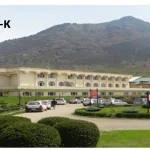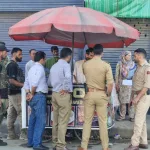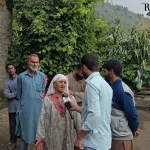WINTER OR SUMMER SESSION
The ongoing debate between the Summer Session and Winter Session academic calendars in Jammu and Kashmir holds significant implications for students, teachers, and the educational landscape at large. In the Summer Session, annual examinations take place in March, while the Winter Session wraps up with exams in November. Each system has unique advantages and disadvantages, but a closer examination reveals that the Winter Session may better suit the cold zones of Jammu and Kashmir, particularly in the Kashmir Division. By exploring both systems and the insights of various educational commissions, we can make an informed case for an academic calendar that aligns with the needs of this unique region.
Pros and Cons of the Summer and Winter Sessions:
Summer Session: Pros and Cons
The Summer Session has traditionally aligned with the academic calendar observed in much of India, and its benefits include synchronization with national exams and entrance tests, as well as standardized holiday schedules.
Pros of the Summer Session
- Alignment with National Exams: Students following the Summer Session are in step with national entrance exams and other standardized tests, making it easier to participate without requiring special accommodations.
- Standardized Holidays and Schedules: Aligning with a national academic calendar allows students to maintain a uniform holiday schedule, beneficial for families who may have members studying or working outside Jammu and Kashmir.
Cons of the Summer Session
- Disruption of Favourable Academic Months: The summer session wastes valuable academic months in cold zones. As seen in the Kashmir Division, students complete exams in March, only to join their next class around April. This setup disrupts the most productive academic months from November to March, where students could otherwise benefit from focused classroom instruction.
- Winter Mobility Challenges: The intense snowfall during winters in Kashmir can make commuting nearly impossible. Schools often remain closed, or students are unable to attend due to hazardous roads. This results in frequent interruptions, impacting both learning continuity and students’ morale.
- Health and Well-being Risks: Winter travel poses health challenges for students, who often commute under harsh conditions, increasing the risk of illness. The Summer Session forces students into stressful winter routines that affect their physical well-being.
Winter Session: Pros and Cons
The Winter Session calendar takes advantage of the natural rhythm of Kashmir’s climate and student lifestyle.
Pros of the Winter Session
- Optimizes Productive Academic Months: The Winter Session makes the most of the fruitful academic months from November to March, allowing students to learn during periods of cooler, calmer weather, conducive to focused study.
- Smooth Transition into the New Year: The Winter Session lets students finish exams in November, and after a brief break, they can start fresh in March, coinciding with the start of spring—a time of renewal and vitality.
- Reduced Stress and Health Benefits: By allowing students to study from home during the harsh winter months, the Winter Session offers a healthier, less stressful routine. Students can focus on online learning at home, reducing health risks and stress, with more support from family.
- Stronger School Attachment: Since students can attend school in the warmer months, they enjoy a more immersive educational experience and develop stronger emotional ties to their school environment.
Cons of the Winter Session
- Limited Synchronization with National Exams: Students may face minor logistical challenges when participating in national-level entrance exams and competitions that follow the Summer Session schedule.
- Additional Coordination Needs: The Winter Session requires additional coordination to align with universities and higher education institutions outside J&K that follow the Summer Session calendar.
Educational Commissions’ Insights and the Case for the Winter Session
Educational reforms in Jammu and Kashmir have been guided by the recommendations of various educational commissions, which have recognized the region’s distinct needs. One of the key voices in advocating for an adapted academic schedule was Khawaja Ghulam Sayidain Commission, which stated, Education must consider the unique climatic and cultural context of the region to foster a system where students can thrive without undue hardships. This reflects the need for an academic calendar that respects local circumstances, such as the harsh winter months in the Kashmir Valley.
In India, several education commissions have contributed to shaping educational policies that consider the diverse climates and regional needs of the country. The Kothari Commission (1964-66) also highlighted the importance of education being responsive to local needs, urging that “educational policies should be adaptive and responsive to the diverse climates and challenges of India’s regions, ensuring equitable access to education.” The Winter Session aligns with this philosophy, providing a more context-sensitive approach for the cold zones in J&K.The National Commission on Teachers (1983) highlighted the significance of teacher training programs that consider regional climatic challenges, suggesting that educators should be equipped to modify teaching methods to suit varying weather conditions. The National Policy on Education (1986) further reinforced this idea by recommending that educational institutions develop policies tailored to the specific needs of their geographical areas, thus promoting a context-sensitive approach to education.
Moreover, the National Curriculum Framework (2005) urged the incorporation of local cultural and environmental factors into educational practices, advocating for a system that resonates with the unique climatic realities of different regions. Additionally, the NEP(2020) calls for a flexible academic calendar that can accommodate regional climatic variations, ensuring that learning is not disrupted by adverse weather conditions. By prioritizing educational flexibility and adaptability, NEP-2020 aims to create a resilient education system capable of responding effectively to the diverse climatic challenges faced across the country, preparing students to thrive in an ever-changing environment.
Collectively, these commissions highlight the critical importance of adaptability in educational policies, ensuring that students in Jammu and Kashmir especially from the cold zones receive a relevant and effective education that respects and responds to the challenges of their unique climatic circumstances.
The Reality at the Grassroots Level
Examining grassroots experiences further strengthens the case for the Winter Session in the Kashmir Division.
- Favourable Academic Months: From March to July, students in the Kashmir Valley experience productive months that could be dedicated to classroom learning. Under the Summer Session, however, these months are largely wasted as students wait for the academic year to realign. A Winter Session lets students make the most of November to March—Kashmir’s best months for academic productivity.
- Missed Opportunities with the Summer Session: For example, Class 10 students receive their results in April and then transition to their next class around October. This delay wastes valuable months that could be used for learning and academic growth.
- Winter Restrictions: Due to heavy snow, students often cannot commute during the peak winter months. In such a scenario, the Winter Session allows students to stay at home during these difficult months, focusing on assignments or online learning without facing the physical risks of winter travel.
- Health and Emotional Benefits: Winter sessions also ensure students can remain in their homes, reducing stress and allowing them to enjoy the season in a more relaxed, family-supported setting. When they return to school in spring and summer, students feel recharged and can establish a stronger connection with the school setting.
- Incorporating Online Learning: While winter challenges physical mobility, they present an opportunity for digital learning. Online teaching sessions during these months complement classroom education, making the Winter Session more adaptable to modern, blended learning environments.
Conclusion: A Thoughtful Shift toward the Winter Session
The Winter Session offers a well-suited academic framework for the Kashmir Division, catering to the region’s climatic, health, and emotional needs. By aligning education with the local environment, the Winter Session allows students to enjoy productive learning months, minimize winter health risks, and develop a stronger attachment to their school environment during the warmer months.
In an era where education is increasingly adaptive, Jammu and Kashmir’s cold zones could benefit from adopting the Winter Session as a standard academic calendar. By considering the recommendations of key educational commissions and observing grassroots realities, it becomes clear that this approach would provide a more favorable and resilient system, enabling students to thrive academically and personally.
As we reflect on the challenges and advantages of each academic session, it appears that the Winter Session presents a balanced and thoughtful choice for the Kashmir Division—one that aligns education with the rhythms of life in the Valley. Ultimately, however, the decision regarding the academic session rests with the government, which considers various factors that may be invisible to us. We trust that their approach is designed to best support the well-being and academic success of our students, who represent the future of the nation.
(Author is Sr. Academic officer; Physics. Feedback: [email protected])








